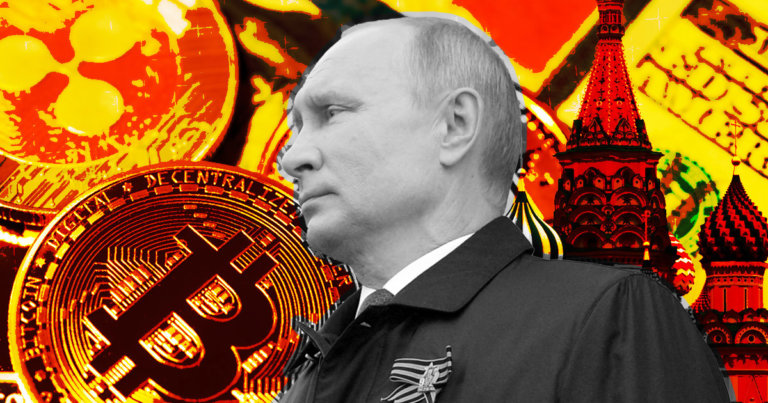 Putin signs law banning crypto-based payments in Russia
Putin signs law banning crypto-based payments in Russia Putin signs law banning crypto-based payments in Russia
The legislation comes after the central bank finally showed signs of support for crypto payments over the last few months.

Cover art/illustration via CryptoSlate. Image includes combined content which may include AI-generated content.
Russian President Vladimir Putin signed a law on July 14 that bans the use of cryptocurrencies as a means of payment, local news media RBC reported.
The ban applies to the use of digital financial assets (DFAs) and utilitarian digital rights (UDRs), which refers to tokens that offer the right to utility or services.
The law reads,
“It is prohibited to transfer or accept digital financial assets as a consideration for transferred goods, performed works, rendered services, as well as in any other way that allows one to assume payment for goods (works, services) by a digital financial asset, except as otherwise provided by federal laws.”
The final clause leaves an exception on DFA payments that may be allowed by federal laws.
The legislation also places an obligation on crypto exchanges to reject any transactions where DFAs or UDRs can be used as an alternative to money. In other words, crypto exchanges need to ensure that no transaction takes place where any crypto assets are used as payment for goods or services.
The draft bill was first introduced in the State Duma, the lower house of the Russian Parliament, on June 7 by Anatoly Aksakov, Chairman of the Financial Market Committee. The law was approved by the Federation Council, the country’s upper parliament house, and sent for consideration to Putin on July 8.
Although Russia is yet to fully regulate cryptocurrencies, the law “On Digital Financial Assets” introduced and defined DFAs and UDRs when it went into force in 2021.
Russian regulators are scheduled to review a new bill, “On Digital Currency,” later this year which is expected to fill the holes in regulation.
The legislation will come into force 10 days after it is published in the government gazette, the RBC report said.
A change in stance
Although the Russian central bank had called for a ban on cryptocurrencies for years, recent developments suggested that the bank may be softening its stance.
In May, the Russian industry and trade minister Denis Manturov said that the country would sooner or later legalize crypto payments, Reuters reported.
In the same month, another Reuters report stated that the Central Bank of the Russian Federation was open to the use of cryptocurrencies for international payments.
In June, central bank governor Elvira Nabiullina said in an interview with RBC that cryptocurrencies can be used for international payments, provided the assets do not “penetrate” the Russian financial system.



 CoinGlass
CoinGlass 


 Farside Investors
Farside Investors 

















































































